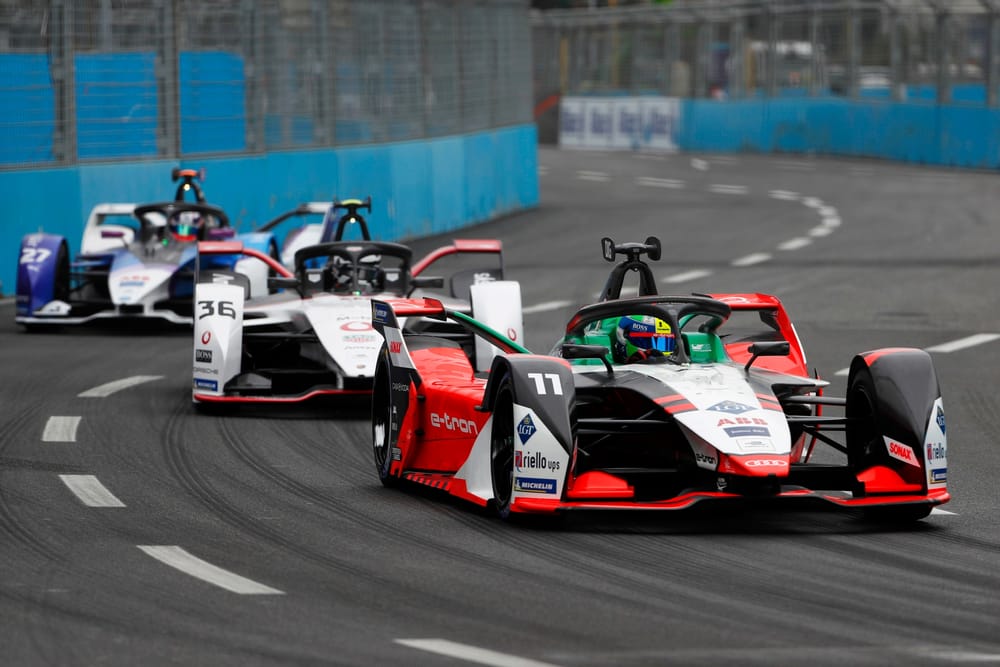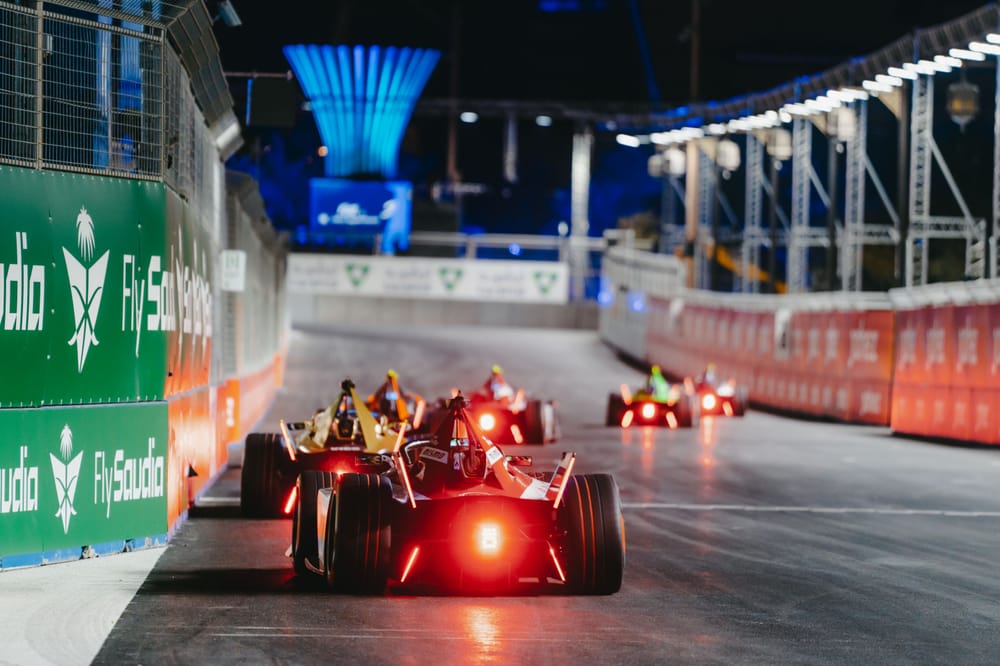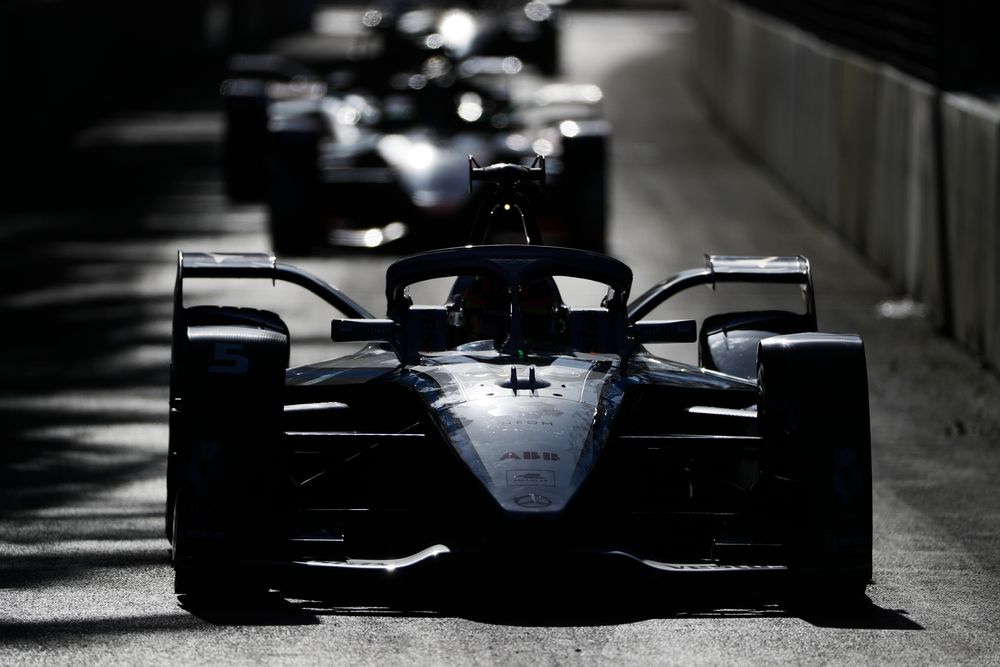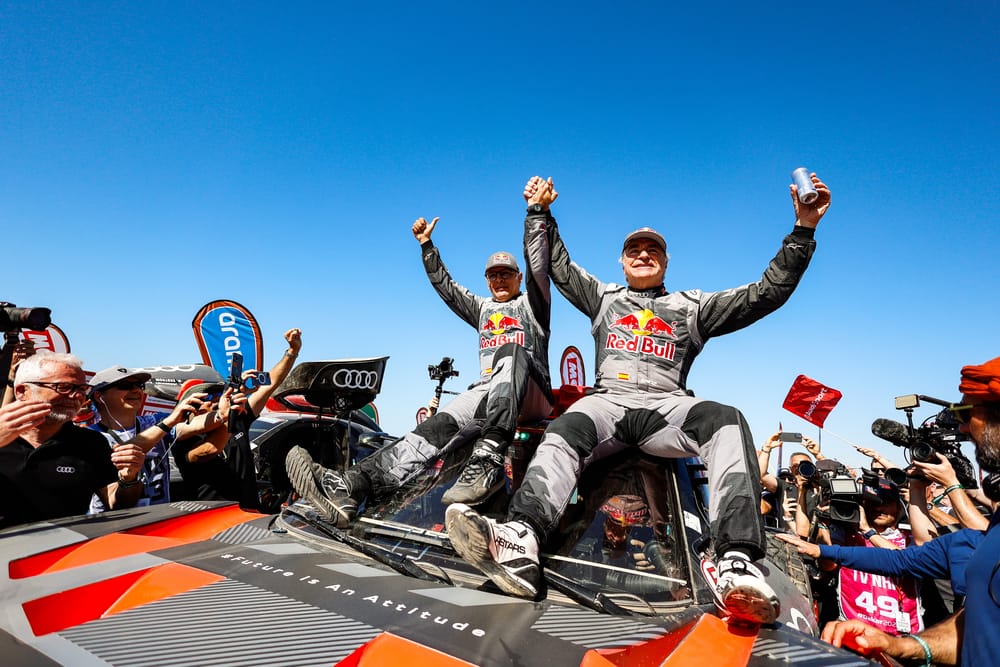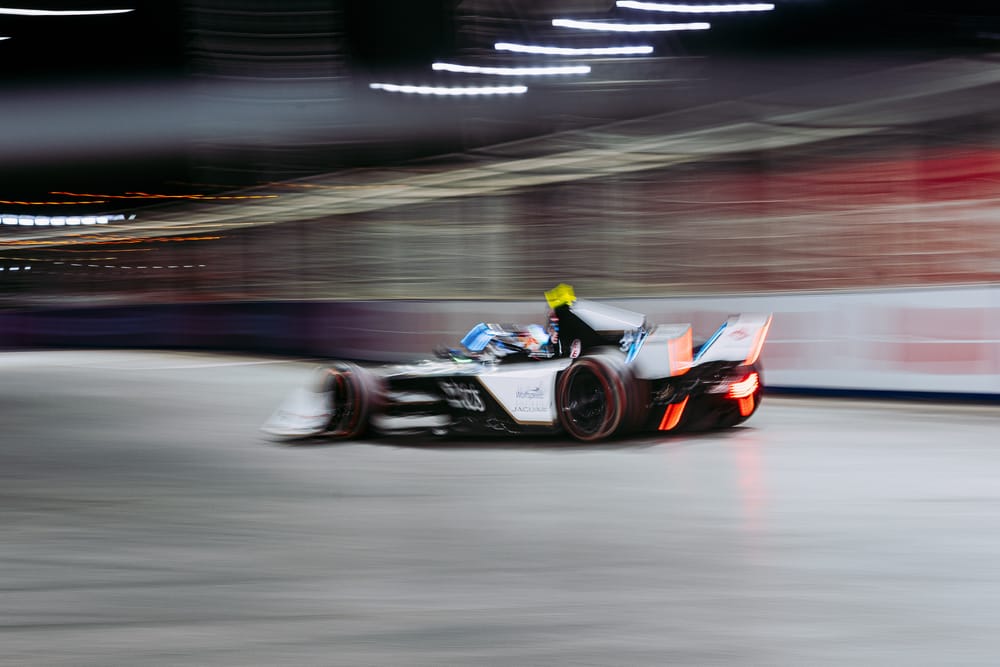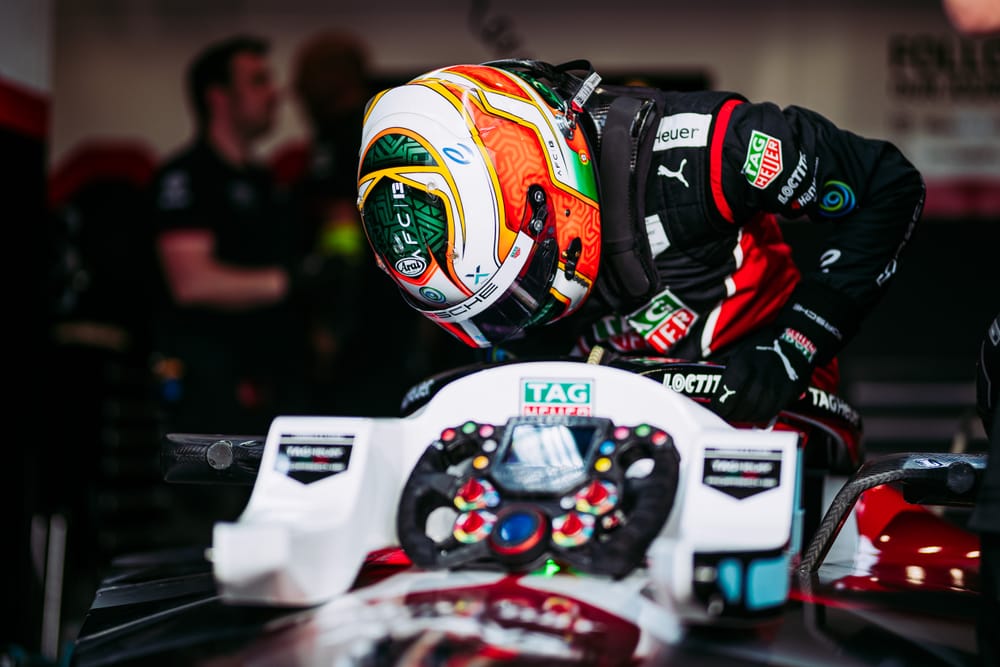During the first two rounds of the current Formula E season, there has been a surprising focus of discussion in some quarters of the paddock: whether one of the big German manufacturers that previously left could make a shock comeback.
Formula E’s nadir came in the dying weeks of 2020, the first pandemic winter, a time of forlorn gloom the world over.
As the teams reconvened for testing at Valencia in November 2020, unbeknown to most, both Audi and BMW had already made their decisions to quit.
A distracted Audi team boss Allan McNish wasn’t his normal ebullient self that week prior to the announcement, and Roger Griffiths and co at BMW's partner team Andretti knew a judgement day of sorts wasn’t too far away. Although the feeling in and around the team just at that time was that it would be probably OK - it wasn’t.
With voices of dissent already getting louder in the Mercedes silver embossed corridors of Daimler, in the space of a few weeks, Formula E’s roots were fraying.
By the summer of 2022, Mercedes, BMW and Audi were all gone, leaving Porsche - by this stage having completed a third season of general underachievement - as the only Teutonic involvement at all.
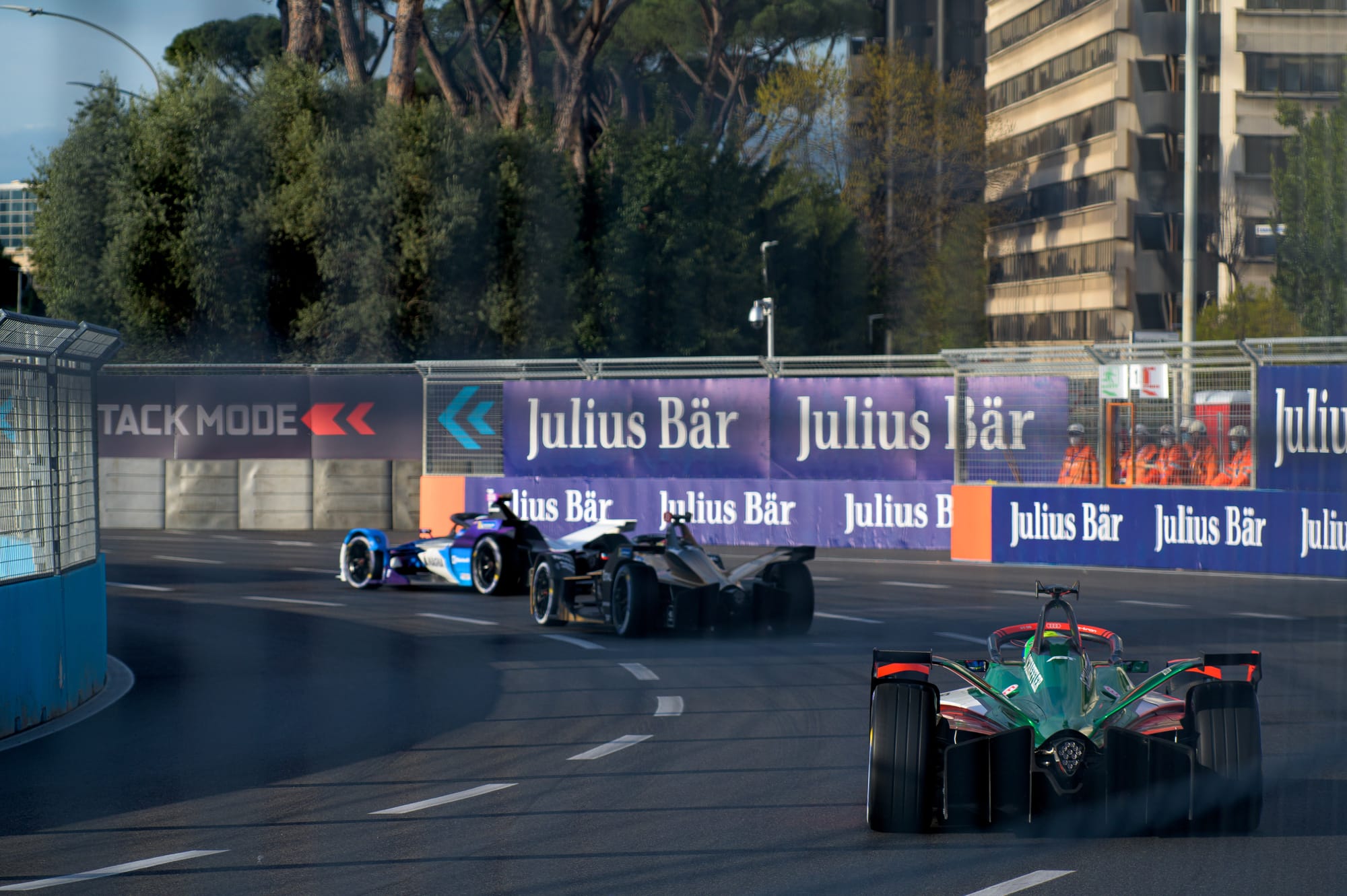
Since that time there have been just a few subtle hints that one of Mercedes, BMW or Audi might consider coming back to Formula E sooner than people may think.
There was the Gen4 open house meeting in Monaco in 2022 where, amid the public unveiling of the Gen3 car, representatives from BMW and Audi were in attendance.
That meeting was not especially telling as it was an informal first reach-out regarding what would come further down the line in Gen4, but nonetheless, they turned up.
Mercedes was still involved then so its then team boss Ian James and other significant Daimler bigwigs were in town too to at least get a faint trace of the direction it might all be taking from 2026 and beyond.
Then there was word that Mercedes High Performance Powertrains could be cracking some technical knuckles to get to partner up with Mahindra shortly as a technical partner.
Mahindra has denied there would be future Mercedes involvement towards the end of last year, but some talks have for sure taken place. It remains to be seen if HPP could at least nudge the door ajar for Mercedes to come back to Formula E in a gentle way, and even if it did would it want to fully come back?
BMW feels less likely. It is getting some electric rub-off with its World Endurance Championship and IMSA SportsCar programmes but is not believed to be doing anything other than occasionally keeping in irregular touch with Formula E.
And Audi? If you believe the flailing rumour mill that exists around its plans, there is unease at board level about the sums of money that will have to be burned through in the coming five or six years to get its Formula 1 project off the ground, and then anywhere approaching success.
If that unease becomes more than a wobble and there is a modification to the plans, where will Audi go for its messaging now its Dakar Rally project is finished too? Globally it has few options, with one of them perhaps being a return to Formula E to add to its seven E-Prix wins and 2017-18 teams’ title.
To get an informed opinion on the question of if any of the previous three German manufacturers may return, Porsche is an obvious starting point.
Porsche is among the key stakeholders in the all-electric championship right now and its every move makes a ripple in Formula E, and so it should.
Porsche is the power manufacturer along with Jaguar and Nissan. It may not have achieved as much as DS and Jaguar in terms of outright victories, just yet, but its every decision, particularly on its future movement, is monitored forensically.
“I think [OEMs coming back] depends very much on the philosophy of the OEMs," Porsche motorsport boss Thomas Laudenach told The Race recently.
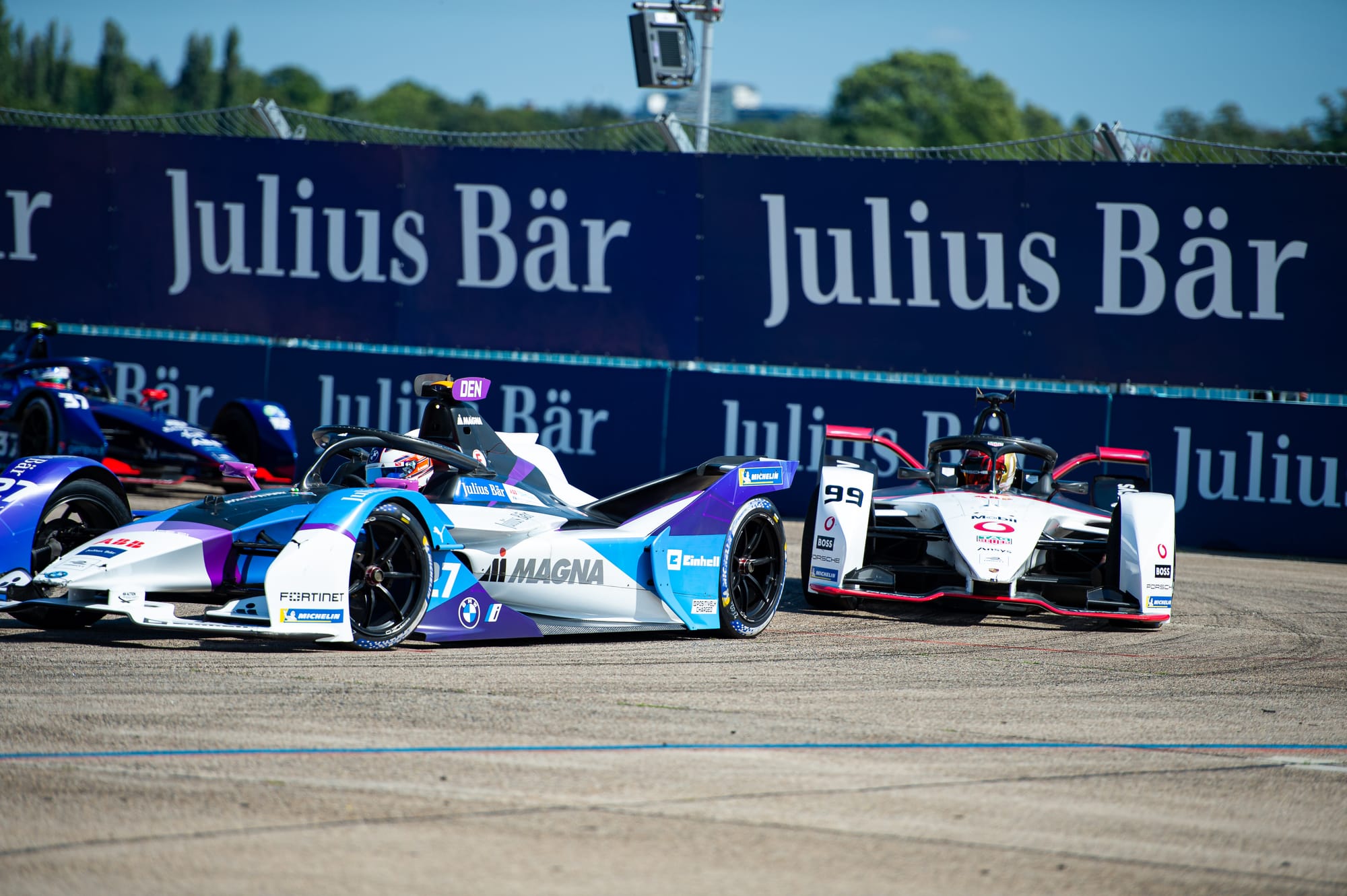
“One thing I know for sure, there are many OEMs who know that, if they want to use motorsport as a tool for their brands, they have to take care of electrification because it’s the main route on public roads.
“Just taking the fact that, right now, there is no other full electric series on this planet on the level of Formula E. Just taking these two aspects, I would think one of the other [German OEMs] will consider coming back, yes.”
Laudenbach won’t be pushed on timeframes but that last paragraph will ring like a lilting church bell for the execs at Formula E’s Hammersmith HQ.
What, though, would hold them back?
It’s not cash, because pound-for-pound Formula E is among the best deals in global motorsport from a budget point of view. A fully-fledged world championship for under €35million is a big neon sign of opportunity for most - not all, but most - marketing savvy board members in big manufacturers.
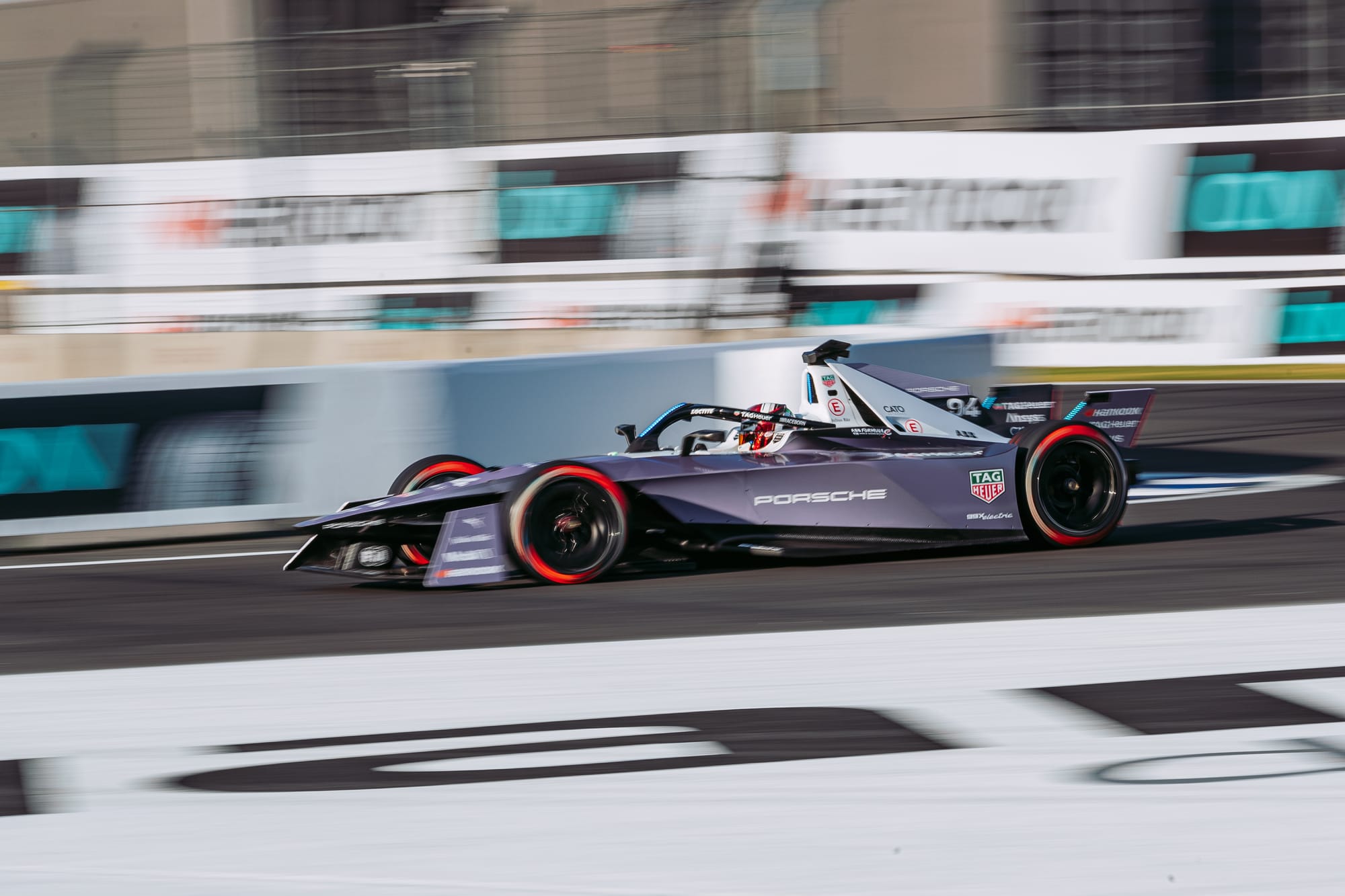
From a manufacturer’s standpoint, the relative lack of technical freedom in Formula E is an issue. Yet, on the other side responsibility is crucial and in devising the financial regulations for the 2022-23 season and beyond FE laid down a deciding marker.
“If you ask me right now, you have to say that what we spend and what we get back is quite good in relation,” says Laudenbach.
"Maybe there are manufacturers who say ‘oh I only step in if I’m allowed to do this and that and this’, which I understand, but again we need also to look at the trade-off between costs."
At this point, Laundenbach, an engaging and intelligent interviewee as befits his successful engineering-led career, leans in and says, with something approaching a twinkle in his eye: “Let me put a positive thing out there, and I’m not sure if everybody realises in public, but I wasn’t 100% confident that with the Gen3, with all the restrictions we have, you could make a difference as a manufacturer.
“But since we’ve seen last season and since we’ve seen this, at least in qualifying and practice, you clearly can make a difference as a manufacturer. We’ve seen very strong Jaguars last year, we’ve seen a very strong Porsche, that doesn’t happen by chance.
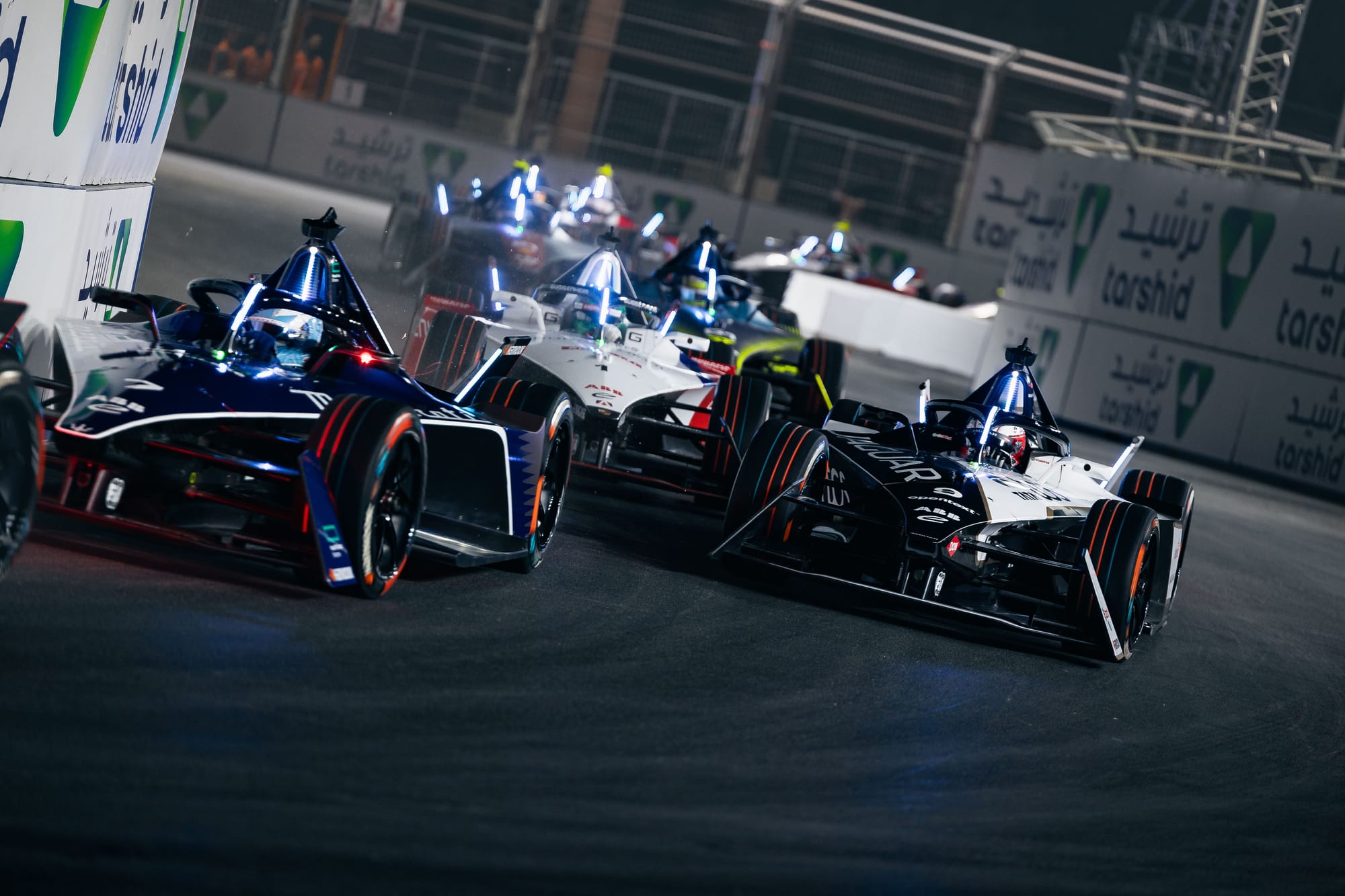
"So, you still can have an influence on performance against other manufacturers and teams."
It reads and seems as an obvious point but it’s a vital one. It’s important for Porsche, this is clear.
“Porsche would never race in a 100% spec series," adds Laudenbach, "but as long as we have the possibility to make a difference by our engineering - because we are a car manufacturer, we’re a race team, but first we are a car manufacturer - as long as this is a given, we are happy to consider a championship.
"Right now, with this, that’s the reason we are in [Formula E].”
There’s a lingering assumption that Formula E is not as relevant to manufacturers as it once was, that perhaps the EV messaging is a bit passe. The mean increase of EV sales in the last 18 months doesn’t back that up
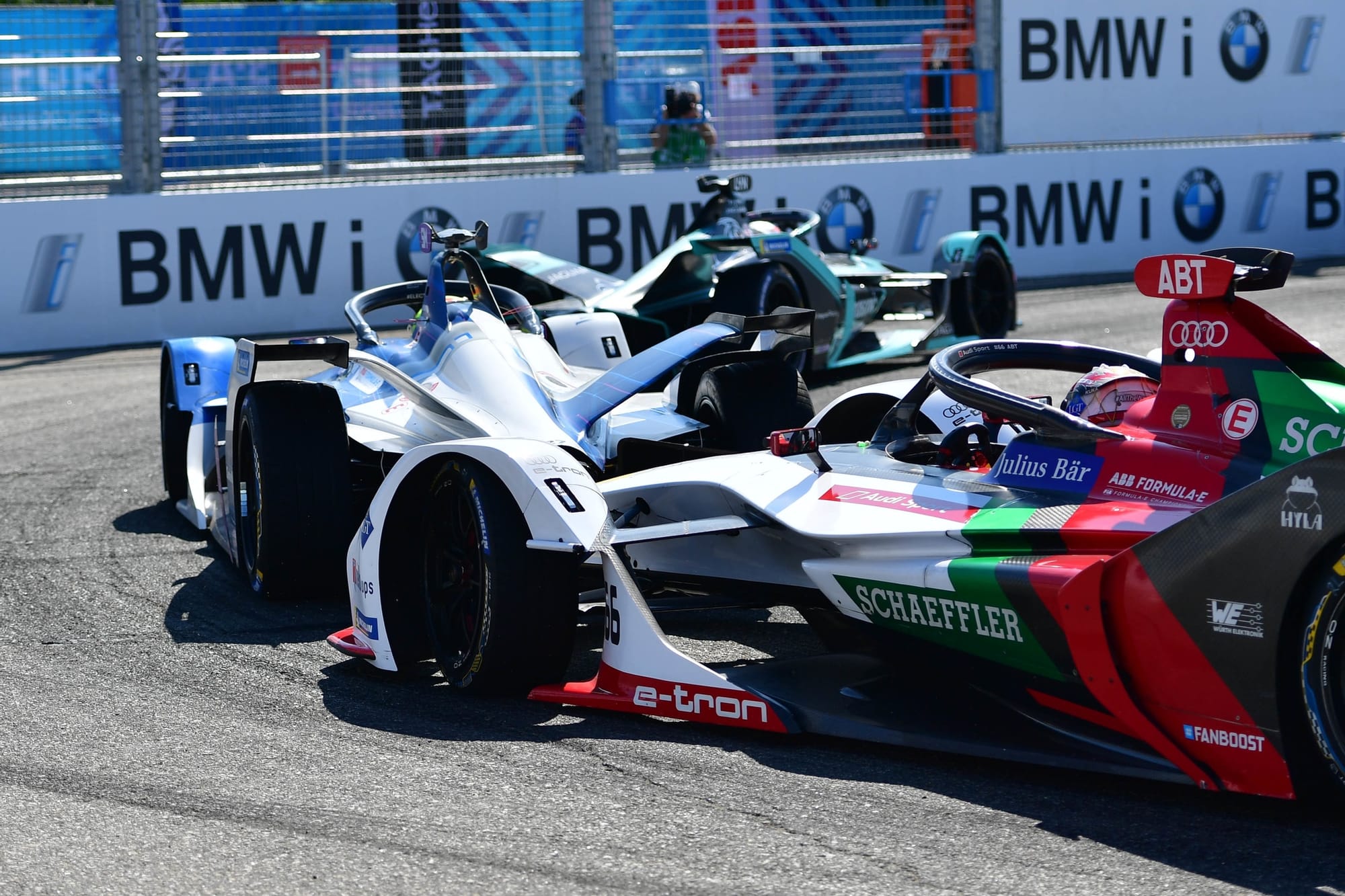
Audi, BMW and Mercedes' 2020-22 exits were complicated situations and individual decisions. They gave the impression of manufacturers as a whole being less inclined to give Formula E a go, but this is misleading.
Now it will likely be a case of one making the bold decision before another follows, but the feeling in several quarters is that a new manufacturer, whether it be a German returnee or not, will be part of it all sooner rather than later.

